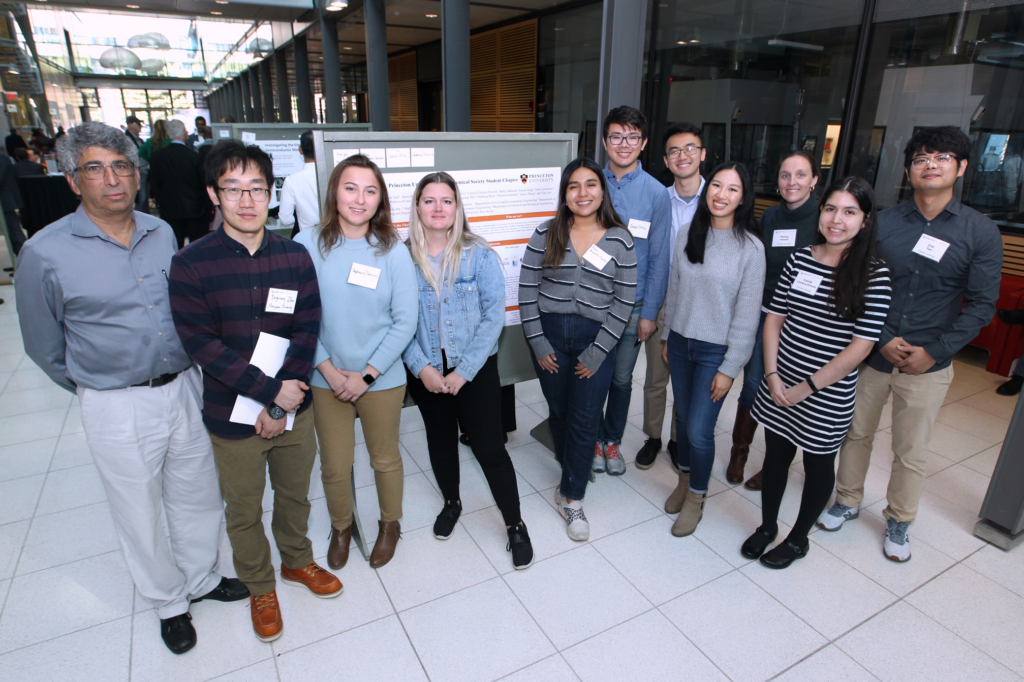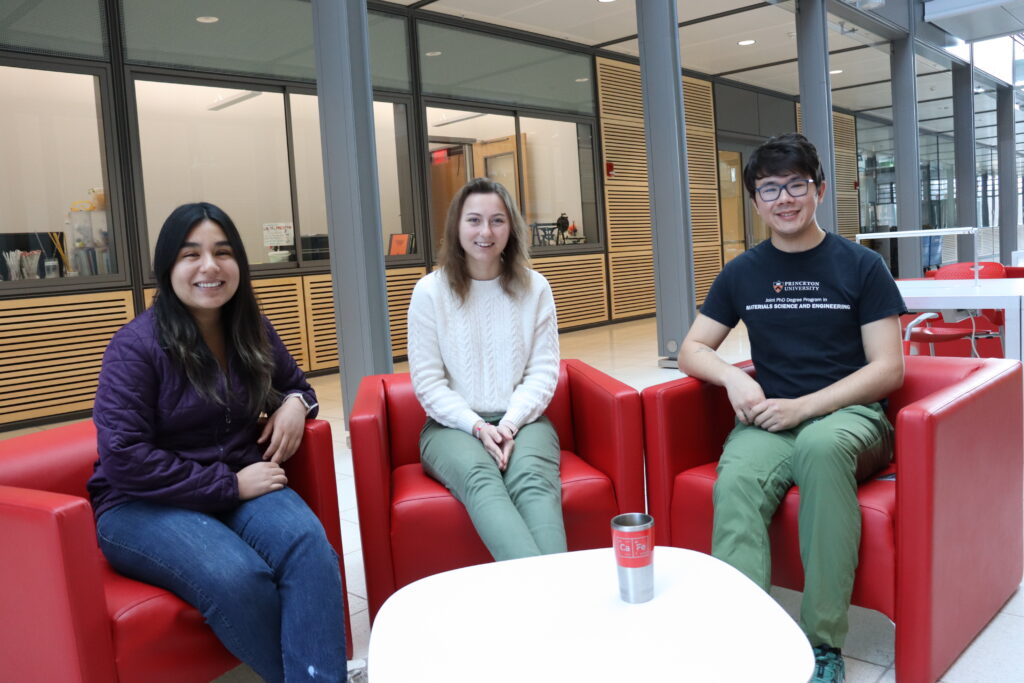A home for Electrochemists with new Electrochemical Society

For years, the story goes, it wasn’t easy to find electrochemists at Princeton University. The field was perhaps too cross-disciplinary for a home of its own and the chemists, engineers, and physicists who might otherwise have identified with it found berths in well-established fields.
That was then. Now, the country’s ambition for cleaner, more sustainable forms of energy puts battery technology and electronics front-and-center. Which puts electrochemistry front-and-center, too.
With deft timing, a group of Princeton graduate students in chemistry and electrical engineering has stepped up to found Princeton’s first local chapter of the national Electrochemical Society. Open to students from any background of study, Princeton ECS meets monthly to offer its members seminars, research talks, job opportunities, and the kind of camaraderie that arises among people compelled to understand the movement of electrons.
In fact, group officers said, the number of electrochemists at Princeton has more than tripled in the past four years.
“Electrochemistry is a really broad term for studying how electrons interact, and there are so many different ways of coming at it,” said Stephanie Dulovic, chapter president and a fourth-year graduate student in the Bocarsly Lab.
“We have members who are interested in batteries and organic chemistry students who are interested in the transfer of electrons in molecules. In my own lab, we are interested in the transfer of electrons for how we can transform CO2 into useful products. So, there’s lots of different ways of looking at it. We have multiple departments represented.”

Electrochemical Society officers (l to r): Alma Hernández González, Stephanie Dulovic, and co-founder Joseph Stiles.
Group co-founders Joseph Stiles and Zilai Yan sought out a base at Princeton Materials Institute (PMI) so their group would have a broader reach rather than being identified with one particular department. Faculty supporters include Professor of Chemistry Andrew Bocarsly; Kai Filsinger, lectuer at PMI; and Kelsey Hatzell, an assistant professor in Mechanical and Aerospace Engineering who came to Princeton in 2021.
“In general, the energy transition is the greatest impetus for the growth in electrochemistry on campus and across the world. The jobs in electrochemistry are booming right now because of the growth in battery technologies,” said Hatzell.
“The field of mechanical and aerospace engineering has been at the forefront in developing engines for a range of transportation applications. Currently, we are experiencing a paradigm shift, moving away from internal combustion engines towards battery electric vehicles. So, it’s unsurprising that engineers are now absorbing electrochemistry and electrochemical engineers to address this energy transition.”
She added that anyone in emerging technologies for decarbonization should also find the group useful.
For their own part, the group’s officers emphasize its professional utility.
“With all of our members coming from different backgrounds and having lots of instruments at our disposal, we have a community of people who are experts in those instruments showing us how to do certain techniques,” said Dulovic. “It’s a great resource to use for improving our research and reaching our own goals.”
Stiles, a fifth-year graduate student with the Schoop Lab , underscored the importance of the group’s seminar offerings. “We recently had a presentation from the group’s co-founder, a postdoc in Kelsey’s lab, about a very specific way to analyze impedance data. I use a lot of impedance data in my work. It was interesting to get his perspective because we analyze the data very differently.
“We also had a professor from Columbia University come to talk about scanning electrochemical microscopy, a really cool technique where you’re basically getting an area map of electrochemical activity,” he added. “We don’t really have anyone at the university who does that, so it was really cool to bring someone in to see what was going on with that technique. Those are the kinds of things we’re looking for.”
Alma Hernández González, the group’s vice president, emphasized the local chapter’s association with the broader international group, which has a board of directors whose members span the globe and work in academia, government, and industry.“
The Electrochemical Society is huge international organization. Even when I was in Mexico, I was part of it,” said Hernández González. “I think it brings a really big support system. You can go to conferences and meet through the seminars. They even have a directory to find people. And most important, a job board.
The next meeting of the Princeton Electrochemical Society will be held January 25 in Bowen 420 at 12 p.m. with lunch. The group is free to all Princeton students, although membership in the national ECS, headquartered just a few miles away in Pennington, carries a fee (which can be removed via application). For more information, contact Princeton ECS through this email: [email protected].
